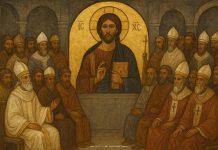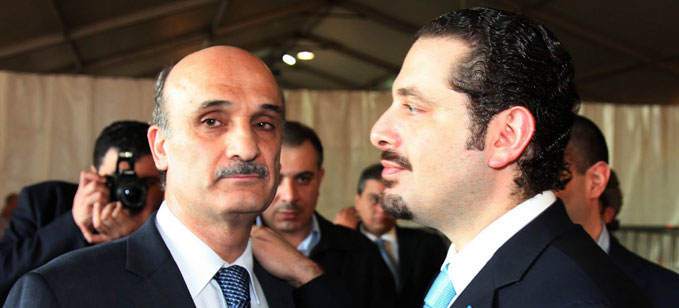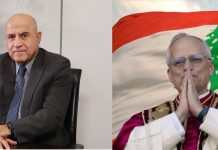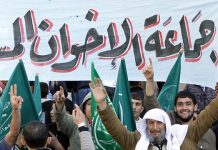What’s up, Doc?
Michael Young/Now Lebanon/ Published: 21/08/2015
Did Future even notice that Samir Geagea had left them?
It is remarkable how invisible was the reaction of the Future Movement when its Christian partner Samir Geagea signed a declaration of intent with the Free Patriotic Movement. How different from Hezbollah, which has determinedly kept Michel Aoun happy to ensure he does not abandon his alliance with the party.
Geagea’s decision to effectively jump ship on the remnants of March 14 was less dramatic than Walid Jumblatt’s in 2009, but no less significant. It showed that the Lebanese Forces leader sees little potential in his alliance with the main Lebanese Sunni organization. That does not mean Geagea’s relations with Future are over. Rather, he has expanded his political options.
Future may find that this will come back to haunt the Sunnis. The country is moving toward an overhaul of the constitution to replace the post-Taif political order with one weighed against Sunnis. And in this context Geagea’s treatment as a poor relative by the Future Movement, particularly since Saad Hariri’s departure from Lebanon in 2011, has been a grave mistake. The head of the Future Bloc, Fouad al-Siniora never visits the Lebanese Forces leader and is not well-attuned to the Christian mood. Nor, unlike Hassan Nasrallah, has he considered it vital to work hard to maintain a strategic partnership with Christians to protect his own community against the demands of the other main Muslim community.
Nasrallah’s speech last week was a clear indicator of what Hezbollah seeks to achieve. As the situation in Syria turns to the party’s disadvantage, Hezbollah and Lebanon’s Shiites will have to brace for a Sunni backlash and sense of empowerment. The only way Hezbollah can protect itself is to change the balance of representation in Taif to ensure a structural majority for Shiites and Christians. To win over Christian backing, Hezbollah may very well agree to go along with the idea of a highly decentralized administrative system, which has long been a core Christian demand.
Hezbollah’s ambition is why, for Nasrallah, gaining Christian support remains so essential. And it explains his keen defense of Michel Aoun last week, when the Hezbollah leader insisted the party would not allow the general to be isolated or “broken.”
As many have observed, the most likely way for Hezbollah to reinforce itself in the state is to alter the 50-50 Christian-Muslim balance in Taif and redistribute sectarian shares so that Sunnis, Shiites and Maronites each have roughly a third of representation in parliament and government. Shares of the smaller sects would be adjusted in this general framework. In that way, Christians and Shiites would retain a permanent two-thirds majority over Sunnis, allowing Hezbollah to shield itself from within the state. Many Christians would be reassured, feeling this would protect them against a Sunni wave in the region, which they feel — rightly or wrongly — would lead to the marginalization of minorities.
Indeed, many Christians today favor a highly-decentralized system in Lebanon precisely because they have misgivings about their future in a Muslim-majority country. But it is also true that most feel more reassured by the Shiites — a minority in the region like them — than they do by the Sunnis, whom they associate, quite simplistically and undiscerningly, with higher levels of religious extremism.
In this complicated sectarian climate, Future would only gain by having Christian partners in order to better moderate Christian attitudes. That’s because fear will lead Christians to make decisions that may undermine the reflexes of sectarian compromise and power-sharing at the heart of the political system. One wonders whether some officials in the Future Movement have fully absorbed the meaning of the presidential vacuum. It goes far beyond Hezbollah’s wanting to bring Aoun to office and by now this should be perfectly obvious.
Hezbollah and Aoun are collaborating in an effort to change Taif and the post-Taif system. Each has his own reasons for doing so, but the larger objective is the same: to amend a political arrangement that both believe is to their disadvantage and to the advantage of the Sunni community. What matters here is not the reality of Taif’s uneven implementation, which has harmed all sides at times, but perceptions. And these Michel Aoun and Hassan Nasrallah have successfully manipulated in pursuit of their aims.
There are senior officials in the Future Movement who are openly admitting that Taif is dead, so no one can plead ignorance. If so, it’s time for Future to give added weight and recognition to its Christian counterparts. Otherwise, before long we will see the likes of Geagea and the Gemayels opening a dialogue with Hezbollah, which has shown a greater inclination to take Christian anxieties seriously.
This situation reflects more than anything else the end of March 14. The coalition has had many deaths, but the breakdown of cross-confessional collaboration buries it once and for all. When Samir Geagea went his own way he was confirming such finality. The Lebanese Forces leader will henceforth take his own political path, and at no time was this more evident than last week when he and his followers said little about the anti-Sunni slogans of the Aounists.
It’s a fact that Hezbollah is out-maneuvering Future on the Christian front. Christians err if they believe that taking sides in the inter-Muslim rivalry will benefit them, but that won’t stop them from trying. For Christians, true security lies in protecting themselves behind a wall of Sunni and Shiite moderation, in a society where all communities interact and coexist as equals.
But that’s not what is happening on the ground. Instead of encouraging Christians in this direction, the moderate Sunnis of the Future Movement are allowing Hezbollah to take the initiative and advance its own divisive agenda. The Lebanese political system has always relied on mutual sensibility. That is missing today, and it’s a shame that Future suffers more from this failing than Hezbollah.
**Michael Young is opinion editor of The Daily Star newspaper. He tweets @BeirutCalling






















